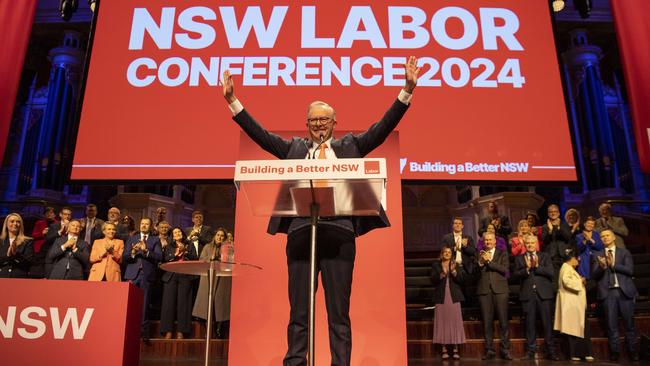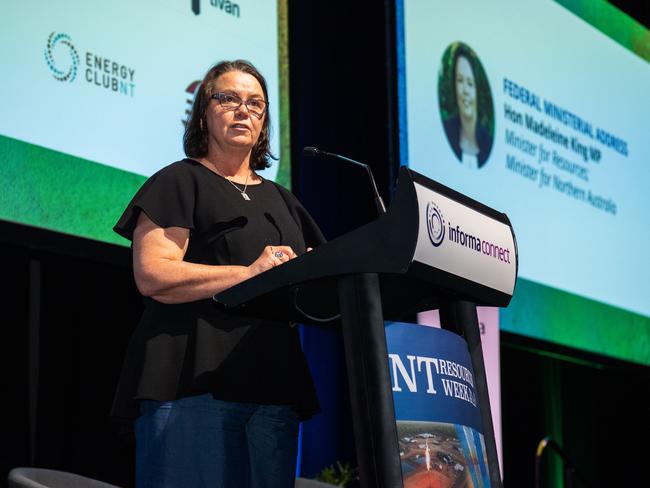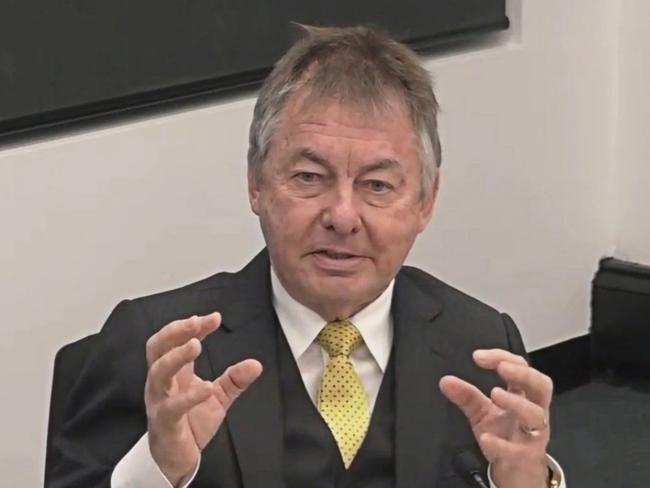
In politics it’s often the little things that trip you up.
On the face of it, cancelling the mining licence for ERA’s Jabiluka uranium mine should have been an easy win for Anthony Albanese’s government.
ERA majority shareholder Rio Tinto doesn’t want a bar of it, the Mirarr traditional owners are implacably opposed to its development, and cancelling the lease would help protect Labor’s left flank from Green incursions.
Even an ardent pro-nuclear lobby don’t seem to care about the fate of one uranium deposit in a country awash with the stuff.
The only people that really care are ERA investors Willy Packer and Richard Magides, who collectively stand to dust more than $100m if they can’t shake the deposit loose from Rio’s grasp.
But buried deep in the filings of the court case between ERA and the government, aimed at blocking the cancellation of the Jabiluka lease, is the suggestion that the issue might throw up some tricky issues for the Albanese government.
Margin Call revealed last month that Resources Minister Madeleine King considered the paperwork surrounding the lease for just 79 minutes before pulling the plug on Jabiluka, in part to give Albanese something to put in a speech only a few days later, ERA says in the court filings.

That speech now looms as a key factor in the legal fight. ERA is chasing draft copies of Albanese’s speech to the faithful at the NSW Labor conference on July 27, when he said Jabiluka “would never be mined”.
The theory, presumably, is that any drafts referencing Jabiluka written before King made the formal decision on July 25 would prove that the fix was in, and that the minister never gave the issue proper consideration.
Whether the Prime Minister’s Office can resist the handover remains to be seen, and ERA may be on a fruitless hunt in any case. But it would be an own goal of the highest order to turn an easy political win into political and legal embarrassment.
It will also put Rio in a difficult position, given the mining major rates Jabiluka as one of its biggest global reputational risks.
Contrast that, however, with its push in the US to build the giant Resolution copper mine in Arizona over opposition from some traditional owner groups.
Or its ongoing commitment to the Jadar lithium project in Serbia, where the election cycle has caught the miner up in a tidal wave of protest and election-related misinformation.
Rio’s takeover talks with Arcadium suggest that is one fight it is going to be happy to put on the backburner, at least.
Scyne of the times?
Canberra’s consulting crackdown has caused more than a little heartache in the once-lucrative advisory world and times are tough for everyone.
But news last week that FTI Consulting has knocked off four managing directors from the ranks of Scyne Advisory’s health business caused a little chortling in the ranks of its competitors over the weekend.
Not a big deal on its own, sure. But a sign, perhaps, that raiding season has opened across other parts of its business as well.
And it was only a few weeks ago that Scyne’s private equity owner, Allegro, was handed the “restructuring deal of the year” at the Turnaround Management Association’s annual conference.
Sure, paying only a dollar to pull PwC’s consulting business from the furnace and still being in business a year later is no small achievement. But what’s the tale of the tape?
Well, Scyne initially trumpeted that it was taking more than 120 PwC partners over as managing directors when Allegro arrived on the scene. Turns out about 20 of them didn’t want to go. Another 10 were made redundant in July, along with 80 lesser mortals. And now another four have jumped ship.
Against that are seven internal promotions to managing director and four new recruits, mostly from government circles. Plus the recent appointment of former Google managing director John Ball as its chief executive. That leaves Scyne’s headcount largely back where it started.
But those 100 people are now supported by revenue estimated at about $240m for the year, a far cry from the $600m to $700m that PwC’s consulting arm was billing before the tax-leak saga began.
The group’s survival is noteworthy, sure. But restructuring deal of the year?
And the icing on the cake? The other major winner on the night was for FTI, for rescuing frozen dessert-maker Sara Lee.
Call for advice
Turn your mind to the annual lecture of the Australian branch of the Chartered Institute of Arbitrators. And now shake yourself awake.
The point of arbitration is to sort your problems out quietly in private, with none of that appalling publicity that corporate and government types find so embarrassing.

So you wouldn’t picture Ciarb, as it calls itself, as the kind of body to put itself in proximity to the messiest legal drama going around.
But you’d be wrong.
The topic is multicultural ethics and professionalism in international arbitration; “multiple professional standards and no enforcement authority – does it matter?”
Delivering the lecture on October 15 is Walter Sofronoff KC.
As one of the many, many bystanders who must wish they had never heard of Bruce Lehrmann or Brittany Higgins, Sofronoff has surely had plenty of reason in recent times to reflect on the ethical dilemmas thrown up by a career in the law.
Initially called in to run a board of inquiry into the failed prosecution of Lehrmann on rape allegations, Sofronoff is still the subject of an investigation by the ACT Integrity Commission for talking to journalists during the review, with the ACT Supreme Court releasing a fresh batch of those exchanges only a month ago.
Should be a cracker of a talk.
INSIDE MARGIN CALL
Scyne Advisory’s competitors are having a little laugh




To join the conversation, please log in. Don't have an account? Register
Join the conversation, you are commenting as Logout